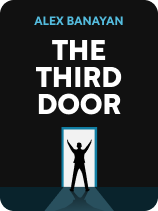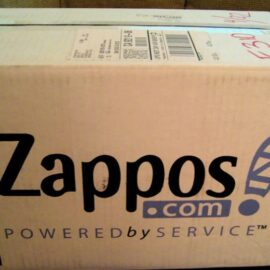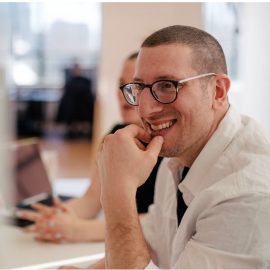

This article is an excerpt from the Shortform book guide to "The Third Door" by Alex Banayan. Shortform has the world's best summaries and analyses of books you should be reading.
Like this article? Sign up for a free trial here.
Can credibility be borrowed? Does “fake it ’til you make it” actually work?
The Third Door by Alex Banayan is a compilation of what Banayan learned about success—not only from the people he interviewed—but also from the process of pursuing them. From his interviews with Tim Ferriss, Bill Gates, and Maya Angelou, he learned about the importance of credibility.
Keep reading to learn how these three life stories illustrate how credibility is a key to success.
Importance of Credibility
Banayan purposefully chose interviewees who had, like him, started their careers as unknowns, and therefore faced a lack of credibility as they tried to get established. Several of the people he spoke with talked about the importance of credibility and shared personal advice on how to convince others to invest in you before you have a proven track record.
(Shortform note: Credibility is defined as trustworthiness or the ability to inspire belief. In the business world, credibility is an essential part of establishing your company or career—without it, you’ll struggle to attract customers, employees, investors, and partners, or to get favorable terms for loans or contracts.)
Tim Ferriss: Borrow Credibility
Tim Ferriss, entrepreneur, life coach, and author of The 4-Hour Workweek, a best-selling book about how to achieve success with minimal effort, told Banayan that an effective way to gain credibility is to borrow it from a more credible source.
To do so, volunteer for credible nonprofits or write for recognized publications. By doing so, you can associate your name with their expertise—you’ll get a lot further contacting a potential business partner by saying you’re, for example, a project coordinator with a known organization, or that you’ve been recently featured on a credible website, than you will by saying you’re a recent college grad.
(Shortform note: Borrowing credibility works because people are hardwired to trust the opinions of others. As Robert Cialdini explains in Influence, this is part of the social proof principle—the idea that we decide what to do or think by following what others do or think. This is a mental shortcut that helped us survive: By trusting the opinions of others, we could quickly determine what was dangerous or where opportunities were. The social proof principle has stayed with us as we’ve evolved, and it’s why we trust an unknown entity (in this case, someone starting their career) if they’re “trusted” by a source we already trust.)
Bill Gates: Know Your Stuff
When Bill Gates, co-founder of Microsoft, was trying to close a deal with IBM in 1980, he faced a credibility problem. IBM was the world’s largest tech company at the time, and landing a deal with them would allow Microsoft to dominate the tech field for decades. But, he was the youthful-looking head of an unproven startup. He had to convince IBM executives that he was a serious player in the field and could be trusted with their business. To do this, he went into their meeting armed with knowledge not only about his product but also about IBM itself.
Know Your Product
Gates convinced IBM executives of his expertise in his product by talking fast and overwhelming them with detailed, technical answers to questions they raised. By discussing in-depth aspects of programming and software, he made it known that his knowledge outpaced his youthful looks.
Know Your Client
Gates also leveraged his knowledge of IBM’s desires and fears to secure a more favorable contract than would have been expected of his new and inexperienced company. Desires: He knew IBM valued speed so he emphasized how fast his company could deliver—even deliberately overpromising what Microsoft was capable of at the time. He did so knowing that if he said what they wanted to hear, they’d be more inclined to work with his company.
Fears: Gates knew IBM feared potential lawsuits, and he used that knowledge to secure what he wanted, which was to keep the source code of his product a secret. He implied that if he disclosed the code to them and it was leaked, they’d be liable for billions of dollars. Fearful of this possibility, they agreed to his terms, even though normally, IBM, as the company with more leverage, would have been expected to extract the source code from Gates as part of the deal. Gates was thus able to establish his company as the one with more power in the negotiation, despite the fact that it was far smaller and less experienced.
Maya Angelou: Fake It—Then Be Sure to Make It
Poet, writer, activist, professor, and Grammy Award-winner Maya Angelou told Banayan her secret to appearing credible when starting out: Trust your capabilities, oversell your existing skills, and then work hard to improve those skills.
When Angelou applied for a job at a newspaper early in her career, she lied about her credentials and experience. She told Banayan that she promised the interviewers what she felt she needed to so that she could get the job, and she trusted that she’d be able to later learn the skills she’d promised. Then, she made sure she did—she spent lots of time at the library studying and learning until she had developed the expertise she’d claimed to have.
(Shortform note: Angelou’s advice to oversell your abilities echoes Bill Gates’s. As discussed above, this strategy can lead to problems if you’re unable to deliver on your promises, and most experts advise that you only promise what you’re currently capable of. However, only promising what you’re currently capable of can put people who are just starting out at a disadvantage, as their current capabilities often aren’t strong enough to set them apart from competitors. By emphasizing that you should immediately work to gain the skills you promised, Angelou acknowledges this reality and offers young people a way to position themselves competitively while mitigating the risks of overpromising.)
Exercise: Establish Your Credibility
When starting out, one of the hardest challenges you may face is convincing a skeptical client or business partner that you can deliver what you promise. Consider some of the tips from Tim Ferriss, Bill Gates, and Maya Angelou to plan how you might improve your credibility.
- Is there an organization you can associate yourself with that you can borrow credibility from? Is there somewhere you can volunteer or offer your services to meet some need of theirs?
- How might you use information to impress the company or client you’re pursuing? What data might you gather about your industry or product that might assure them of your expertise?
- What skills would it benefit you to have to achieve your goal? In what way could you learn them? For example, is there a class you could take or a book you could read? How might you structure your day to make time to learn or practice something?

———End of Preview———
Like what you just read? Read the rest of the world's best book summary and analysis of Alex Banayan's "The Third Door" at Shortform.
Here's what you'll find in our full The Third Door summary:
- That there are three doors in life—but most people only know about two
- Insights, tricks, and motivations to help you find your path to success
- Advice from some of the world's most successful people






